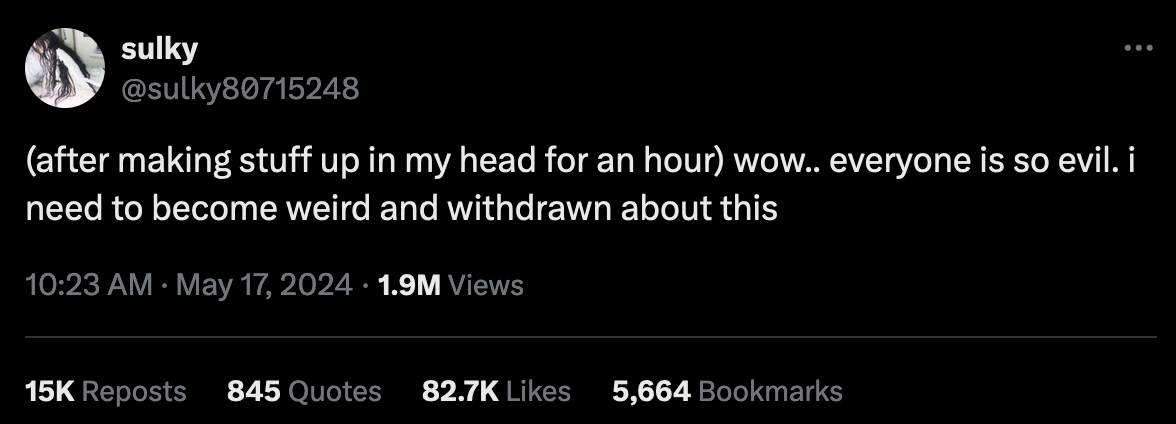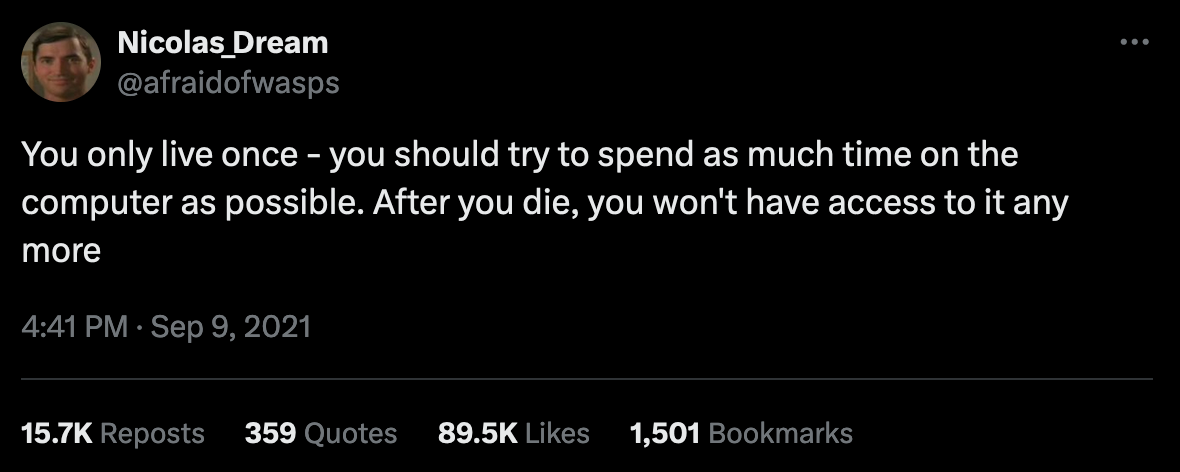Backrooms

1.
The backrooms with their yellowing wallpaper and flickering lights are half place half feeling, a sense of the nauseatingly infinite made visible. We get lost in similar places — digital worlds, bureaucratic institutions, our heads — and though we may feel the emptiness of doing so, we may, like deranged zoo animals, keep doing so.
2.
I’m walking down Venice Beach, killing time at the end of a vacation. A man leaning on a table covered in watches tries to get my attention. “My friend,” he says, “give me two minutes. I have things for you.” I decline. We go on with our lives. These interactions rarely look like this anymore. We sell to ourselves.
We still cast out lines to draw customers in but there’s no need to walk over and endure a sales pitch. You’re in it; the content is the pitch. It likely resonates with you already due to how much money and software talent’s been funneled into the algorithms that bring it to you. On your end, you aren’t looking for a polite excuse to decline; you’re looking for a way to engage and interest and distract yourself, a way to feel understood, a thing to share with others. We sell to ourselves; we help the content along in its quest to apply to us.
It's no wonder that it all skews in the direction of “things that feel good to tell ourselves.” Your heart is in the right place, your struggle is valid for such and such reasons, you should simply follow through or double down. Others don’t get it, others ought to change, others should go the extra mile to meet you.
When the opposite’s the case, who, in the backrooms of your mind or the Internet, will tell you?

3.
For a culture already leaning narcissistic, this is like gas thrown on a fire. Not to get too conspiratorial but if you were a company looking to profit, a state actor looking to sow discord, or both, you'd boost the hell out of this. You'd work with, not against, a population's self-absorption, whipping it up, encouraging people to hear particular things from each other until there isn't enough social cohesion to keep infrastructure working.
Either way, the technologies and human frailties on which this trend rests are not going back into Pandora's box. We’ll keep advertising to each other in virtual worlds, just like this man on Venice Beach, as we have in marketplaces and town squares for millennia. But the backrooms are inhospitable to life; there will be a swing of a pendulum in the other direction.
Dune, as some nerds know, references a fictional event called the “Butlerian jihad” in which humans ban AI, with “Butlerian” being a reference to Samuel Butler, the author of an 1872 novel where characters do the same. As much as AI has been on our minds, it's been 150 years and the best thinking machines we have give us six-fingered hands, hallucinated facts, and I guess pretty good code completion. AI is a supporting actor of what's happening to humans in a more immediate way, a facilitator of our psyches’ flight into backrooms. The writings of yet another Butler, as it turns out, best capture how our flight out of them will look.

4.
Octavia Butler’s Parable of the Sower did for sci-fi what Ari Aster's Midsommar did for horror, or what a surprise calf birth does for a county fair. Unsettling, visceral realism. Instead of Millennium Falcons, it has drought, crumbling systems, and roaming bands of drugged-up pyros. Your eyes can look away from it when it’s over while your mind has a harder time.
Backrooms have no shelf life but our present obsession with expanding and occupying them does. As real as our neuroses may be, we can and we do spend inordinate mental real estate on them, discussing them, coming up with individual brands of horoscope-like psychobabble to categorize them. Butler's novels show that the future is less about this, our projected and hypothetical selves, than the many, many things that let our real selves exist at all: land, water, food, energy, infrastructure, medicine, minerals, their defense and stewardship.
Even as we're forced to refocus on these things, many will find it difficult. I know from experience. A psyche growing healthier can drag itself back into the backrooms just by lamenting how little, materially, it has to show for its work. There’s no “one trick” or epiphany here; to get out of the backrooms, or at least spend time in better parts and keep your bearings, you repeatedly put one foot in front of the other and walk. There are reasons to do so no matter how bad the world may get. There's time to wander the infinite backrooms later but we get to be alive for a finite moment.
Whoever you are, no matter how lonely,
the world offers itself to your imagination,
calls to you like the wild geese, harsh and exciting —
over and over announcing your place
in the family of things.
– Mary Oliver, Wild Geese





